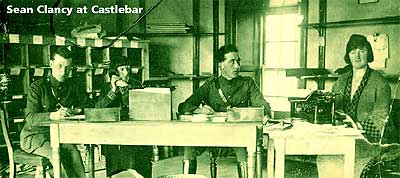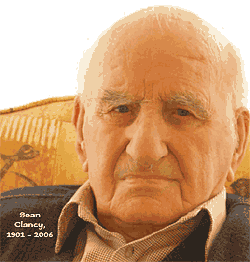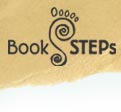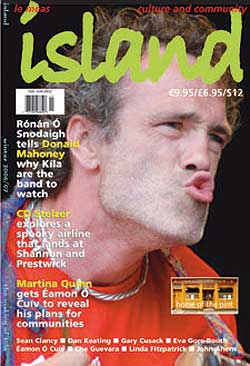|
|
Sean Clancy 
by Derry Chambers and Deirdre Clancy
 Sean Clancy: "It was a
very proud moment,
seven centuries
of foreign rule
had ended"
Sean Clancy: "It was a
very proud moment,
seven centuries
of foreign rule
had ended"
The War of Independence was a big event in the history of our country. We were under foreign rule under the British government up to that, and we achieved independence for this part of the country. At the time of the Rebellion of Easter Week, I was a schoolboy down in Clare, going to school in Limerick. I was very interested in it. I had read all about it and had great admiration for the leaders who were executed. Then I moved to Dublin. I had some friends in Dublin already, and they encouraged me to join the Volunteers, and I joined the 2nd Battalion of the Dublin Brigade. That was about 1919. Of course, we were all young, and we had an excellent organisation at the time. I remember we used meet once a week at first. There was no war going on at that time, but we were preparing for events that were to come. And then when the war began, I got involved in a number of engagements here in Dublin. Naturally, we had great admiration for our leaders, and there were a lot of young men, like myself, from different parts of the country who were involved here in Dublin. That’s how it lasted, right up to the truce in 1921. My experience at that period was almost entirely in Dublin. The situation in Dublin during the Black and Tan period was quite different to what it was in most parts of the country. In the country, when the attacks on the Black and Tans took place, it was done behind hedges and ditches, and so on. Volunteers may have been waiting for them for quite a long time. But in Dublin, we had to attack them in the streets. They had a habit of going around in open lorries, maybe a couple of lorries at a time. Our task was to have a go at them with hand grenades. There were no rifles in Dublin. The rifles had been sent to the country, where they’d be more effective, and it was short arms, revolvers or hand grenades. The job was to have a go at them on the streets, and then escape as best you could. Sometimes we lost men in those attacks. Mainly, we got away with our plans, made to escape, and did so. But at the same time, there were casualties. For instance, I knew a number of the men who were in the attack on the Dublin Custom House. It was only partly a success; they succeeded in burning the building. But quite a number of men were killed and captured. There were two of my best friends killed in it; two brothers named O’Reilly. There were nearly 100 Volunteers captured in the attack on the Custom House, and we knew a lot of them also. The British auxiliaries were a very militaristic force. They operated mostly in the country areas; we didn’t see much of the auxiliaries in Dublin. We did see a lot of the Black and Tans. They used to hold up certain sections of the city at a time, and search houses, search people. They would be violent to people in their searches. They carried out a lot of their raids late at night, when people were in bed. I was working at that time. I was a part-time volunteer. There was a fulltime group called the Active Service Unit (ASU). They were full-time Volunteers, and they were always available to Michael Collins. They had a house here in Dublin, where they used meet each morning, and were available if Michael Collins or any other leader wanted their help in an operation. But the bulk of the Volunteers were working, and had their jobs to do, and I was one of them. When the Treaty came and was signed, I was naturally very interested. I found it difficult to make up my mind on who I should support. But after a lot of deliberation, I decided that the best alternative was to support that Treaty. There was a General Election, and people supported it. There was second election, in fact, and it was carried by a majority in each case. Then it was 1922, and as the British forces began to move out, the new government started to organise a regular army of our own. The troops and members were drawn from the ranks of the Volunteers. Gradually, military establishments were taken over; different barracks here in Dublin were taken over by volunteers. And I decided, anyhow, that I’d do the same thing, and I entered the army at Portobello Barracks early in 1922. After that, I made it my career and remained in it until 1959. What really influenced me in supporting the Treaty was the fact that we were getting our own army and our own police force. There were a lot of drawbacks too; certain things I didn’t like. Our country was being partitioned, and I didn’t see much alternative to that. There were other factors in it too that I disliked. But nearly all those matters have been remedied back over the years since, and thanks be to God the greater part of our country is free. My unit was asked to go to Dublin Castle on a certain morning in January, 1922. The new army wasn’t finalised at that time, but I was in Dublin Castle that morning, and it was at about 12 o’clock that the handover from one government to the other was to take place. There was a lot of excitement. Bands were playing; flags were flying, mostly British flags and mostly British bands, of course. The first company of Volunteers in uniform were waiting outside the castle on Parliament Street for the final event. My group waited excitedly, because we knew that the Commander in Chief, Michael Collins, was to take over the government and the Castle. There was a lot of pomp and ceremony and people in uniform; bands playing and all the rest of it. The Lord Lieutenant at the time was Lord FitzAlan, and he was based up at the Park. He was there to hand over officially to Michael Collins. For some reason or other, Collins was a bit late arriving for the official ceremony. Eventually, I spotted an old, dilapidated taxi entering, and in it was Michael Collins, I think with another man who I hardly knew, a man named Joe O’Reilly. And when the taxi pulled up, it was approached by the British official and he was in morning dress, very official looking. I remember he had a watch chain across his waistcoat. He approached Collins as Collins was leaving the taxi, and he said, "Mr Collins, you’re seven minutes late, and you’ve kept the Lord Lieutenant waiting". And Collins, I think, used a swearword. I think he said, "Blast you". He said, "You people are here seven centuries, and what bloody difference does seven minutes make now that you’re leaving?" The official muttered something back in return; I don’t know what it was. In any case, Collins was taken away by this official to another part of the castle to meet the Lord Lieutenant, who was waiting somewhere, and the official handover took place. The British units marched out with their bands playing for the last time in Dublin Castle, and the Irish company waiting in Parliament Street marched in, and they saluted each other. They gave the Eyes Left or Eyes Right, as the case may be, and in due course they took over Dublin Castle that morning. That was the beginning of the official handover of part of our country. Oh, it was a very proud moment, you know. Seven centuries of foreign rule had ended. The British forces were leaving and they were marching down to the North Wall. Boats were waiting there for them. Needless to say, there was no aircraft travelling at that time. It was the event of a lifetime to see them leaving; all the bands playing, and everything else, marching down to the North Wall and taking the British boats. I only took a very minor part, but even so, it was great to be involved in any shape or form in an event like that in the history of your country. I entered the army at Portobello Barracks, which was just taken over at that time. I served there for a few months. Then I said that I’d like to serve in my own part of the country, and I applied for a transfer down to County Clare. I was transferred to Ennis as a young army officer, and I served there for a period. There were a lot of movements of troops at that time. I moved to Limerick, and then Tipperary. Finally, I moved to Castlebar in Mayo, and I spent three years there. I was young and unmarried at the time; I was indifferent to any transfers that might take place. I met my future wife a year or two after arriving in Castlebar, and I was very happy there. I have the memory of Michael Collins’s death, and the tragedy of his death. I marched in the funeral while I was still in Dublin. That took place in August, 1922. I was involved in other tragedies, if you like, too. A number of my friends lost their lives in the Civil War that followed, on both sides, indeed. I had friends on both sides. It was a sad period, really, to be living in Ireland. It’s nearly a forgotten period of our history now. I think the people who opposed the Treaty at the time were misguided. They were in a minority. The General Election that followed proved that people wanted the Treaty and wanted their freedom. I think the people who opposed it shouldn’t have gone to the extremes that they did. The Civil War was short-term. The people who were rebelling against the then government saw a bit of reason, entered the political scene themselves and accepted the wishes of the people. It was only a very small number of people who were inclined to adopt any form of physical force. Now, I think we’re one of the most peaceful countries in Europe, if not in the world. Unfortunately, we have the problem of the North, and that’s staying, and it will take time. But future generations will provide some solution to it. I hate to be criticising any group of Irish people, but I suppose the Unionists in the North have their problems too, you know. In the course of time, they’ll probably see a bit of reason and fall in with the majority of the country. Hopefully they will, anyway. We all agree that our main ambition would be a united Ireland, and complete freedom for the country. But unfortunately, there’s the problem in the part of our country that’s partitioned that there’s a majority there. Nobody wants another civil war. We’re hoping that, in the course of time, the people of the six counties in Northern Ireland would see a bit of reason and accept some kind of settlement that would give freedom to all parts of the country, and a united government. I was transferred to Dublin in 1930 from Limerick. At that time, I was only a few years married. I had two little babies. I decided to seek some place where I could set up my home, and I picked out an apartment in North Circular Road. The two children were young; one was only a few weeks old. He was very lively at night; it was very hard to pacify him at times. And some of the neighbours protested that he was keeping them awake. So I think that influenced me in making a decision to find my own home in Dublin. By accident more than anything else, I found that Mobhi Road in Glasnevin was being built. To cut a long story short, I bought a house there and lived there for 40 years, and reared my family there. They were 40 happy years. I had five children, and I was very happy with them. They were all very good at school and college, and everything else, and I was very proud of them. I’d say great changes have taken place during my lifetime. Every section of the community, I think, is better off than when I was a young man. You see it in the young people. They’re well dressed; they’re far better dressed than they were in my time. They’re better educated and happier in their lifetime. There isn’t as much want and hunger in the country; there was want and hunger in my time. That has all passed away, and the country is very prosperous now. I’m glad that I’ve lived to see that situation. There are certain things, I suppose, which you could be disappointed with. I’m disappointed that the Irish language hasn’t made more progress. When I was at school as a small boy, we were taught Irish in the school. We had a half an hour every morning learning Irish. We picked up quite a lot of the language that we weren’t accustomed to. We were proud of it, and we were taught to be proud of it. It was our own language. I’m afraid that interest in the furtherance of the language is largely fading. I thank the Lord for giving me such a long life, and I thank Him also for giving me good health throughout my life; and I’m still in good health, thanks be to God. I’m proud of my family; they’re all very faithful to me.
|
| island is looking for material. Send to Newsdesk. |



